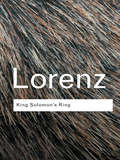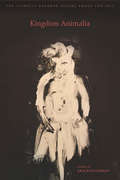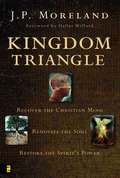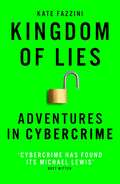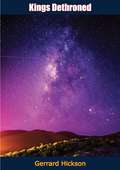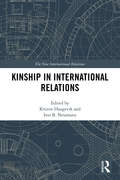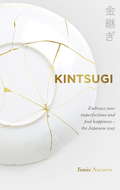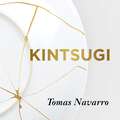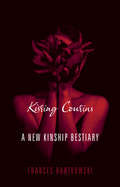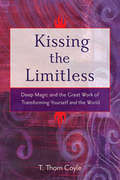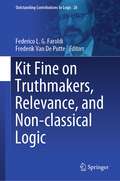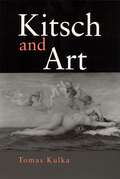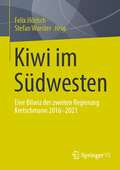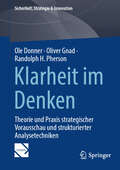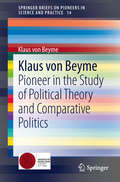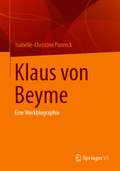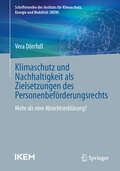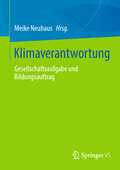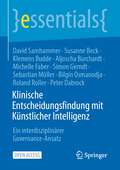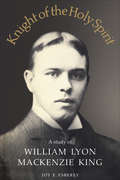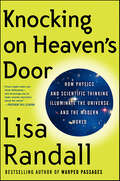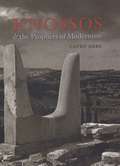- Table View
- List View
King Solomon's Ring: New Light On Animal Ways (Routledge Classics)
by Konrad LorenzSolomon, the legend goes, had a magic ring which enabled him to speak to the animals in their own language. Konrad Lorenz was gifted with a similar power of understanding the animal world. He was that rare beast, a brilliant scientist who could write (and indeed draw) beautifully. He did more than any other person to establish and popularize the study of how animals behave, receiving a Nobel Prize for his work. King Solomon's Ring, the book which brought him worldwide recognition, is a delightful treasury of observations and insights into the lives of all sorts of creatures, from jackdaws and water-shrews to dogs, cats and even wolves. Charmingly illustrated by Lorenz himself, this book is a wonderfully written introduction to the world of our furred and feathered friends, a world which often provides an uncanny resemblance to our own. A must for any animal-lover!
Kingdom Animalia
by Aracelis GirmayThe poems in this highly anticipated second book are elegiac poems, as concerned with honoring our dead as they are with praising the living. Through Aracelis Girmay's lens, everything is animal: the sea, a jukebox, the desert. In these poems, everything possesses a system of desire, hunger, a set of teeth, and language. These are poems about what is both difficult and beautiful about our time here on earth. Aracelis Girmay's debut collection won the Great Lakes Colleges Association New Writers Award. A Cave Canem Fellow, she is on the faculty at Drew University and Hampshire College. She lives in Brooklyn, New York.
Kingdom Animalia (American Poets Continuum #131)
by Aracelis GirmayThe poems in this highly anticipated second book are elegiac poems, as concerned with honoring our dead as they are with praising the living. Through Aracelis Girmay's lens, everything is animal: the sea, a jukebox, the desert. In these poems, everything possesses a system of desire, hunger, a set of teeth, and language. These are poems about what is both difficult and beautiful about our time here on earth. Aracelis Girmay's debut collection won the Great Lakes Colleges Association New Writers Award. A Cave Canem Fellow, she is on the faculty at Drew University and Hampshire College. She lives in Brooklyn, New York.
Kingdom Triangle
by J. P. MorelandWestern society is in crisis, the result of our culture's embrace of naturalism and postmodernism. At the same time, the biblical worldview has been pushed to the margins. Christians have been strongly influenced by these trends, with the result that the personal lives of Christians often reflect the surrounding culture more than the way of Christ, and the church's transforming influence on society has waned. In Kingdom Triangle, J. P. Moreland issues a call to recapture the drama and power of kingdom living. He examines and provides a penetrating critique of these worldviews and shows how they have ushered in the current societal crisis. He then lays out a strategy for the Christian community to regain the potency of kingdom life and influence in the world. Drawing insights from the early church, he outlines three essential ingredients of this revolution: ? Recovery of the Christian mind ? Renovation of Christian spirituality ? Restoration of the power of the Holy Spirit He believes that evangelical Christianity can mature and lead the surrounding society out of the meaningless morass it finds itself in with humility and vision.
Kingdom of Lies: Unnerving adventures in the world of cybercrime
by Kate FazziniWould you say your phone is safe, or your computer? What about your car? Or your bank? There is a global war going on and the next target could be anyone – an international corporation or a randomly selected individual. From cybercrime villages in Romania to intellectual property theft campaigns in China, these are the true stories of the hackers behind some of the largest cyberattacks in history and those committed to stopping them. You&’ve never heard of them and you&’re not getting their real names. Kate Fazzini has met the hackers who create new cyberweapons, hack sports cars and develop ransomware capable of stopping international banks in their tracks. Kingdom of Lies is a fast-paced look at technological innovations that were mere fantasy only a few years ago, but now make up an integral part of all our lives.
Kings Dethroned: A History Of The Evolution Of Astronomy From The Time Of The Roman Empire Up To The Present Day; Showing It To Be An Amazing Series
by Gerrard HicksonAt the turn of the twentieth century, Gerrard Hickson stumbled upon a discovery which convinced him of something shocking. The giants of astronomy had miscalculated the distance of the sun from the Earth, it was closer than we ever thought. The popular estimate of approximately ninety-three million miles appeared to be a mistake, as inconceivable as it seemed.Hickson pored through the methods that his predecessors had used to calculate the distance and the accounts of their work, searching for the means to disprove his theory but instead he found a mistake in Dr. Hailey’s diurnal method. Invented by Hailey in the nineteenth century and used as a basis for many other calculations about our solar system.We can only imagine that Hickson must have gritted his teeth when he set himself the challenge of proving Dr. Hailey’s error. Kings Dethroned is the result of his research, and through his retracing of the steps of astronomers from the Roman Empire all the way up to the present day, we can see an accurate representation of the planets and our sun.Gerrard Hickson, unlike his predecessors, took his findings to the general public and published this book for the consumption of all. Having been rejected or ignored by experts and scientific societies across the western world, he chose to trust in the public. He felt that the truth and his discovery were the wealth of the whole human species and in this modern age it does the reader only good to contemplate the necessity of constant and honest scientific enquiry.
Kinship in International Relations (New International Relations)
by Iver B Neumann Kristin HaugevikWhile kinship is among the basic organizing principles of all human life, its role in and implications for international politics and relations have been subject to surprisingly little exploration in International Relations (IR) scholarship. This volume is the first volume aimed at thinking systematically about kinship in IR – as an organizing principle, as a source of political and social processes and outcomes, and as a practical and analytical category that not only reflects but also shapes politics and interaction on the international political arena. Contributors trace everyday uses of kinship terminology to explore the relevance of kinship in different political and cultural contexts and to look at interactions taking place above, at and within the state level. The book suggests that kinship can expand or limit actors’ political room for maneuvereon the international political arena, making some actions and practices appear possible and likely, and others less so. As an analytical category, kinship can help us categorize and understand relations between actors in the international arena. It presents itself as a ready-made classificatory system for understanding how entities within a hierarchy are organized in relation to one another, and how this logic is all at once natural and social.
Kintsugi: Embrace your imperfections and find happiness - the Japanese way
by Tomás NavarroDiscover how to embrace the imperfect with Kintsugi. Apply this ancient principle to your life and you will learn how to repair yourself, rebuild your life and love your flaws. <P><P>Japanese Kintsugi masters delicately patch up broken ceramics with gold adhesive, leaving the restoration clearly visible to others. Psychologist Tomás Navarro believes that we should approach our lives with the same philosophy. Everyone faces suffering, but it is the way in which we overcome our troubles, and heal our emotional wounds, that is key. We shouldn't conceal our repairs, they are proof of our strength. <P><P>Navarro presents real solutions to genuine problems that he has seen in his professional practice. His anecdotes demonstrate that it is possible to transform adversity or setbacks into a strength. His psychological understanding and perspective will leave you feeling courageous and prepared, should you experience misfortune, be it heartbreak, a job loss or bereavement. <P><P>Often practised alongside Ikigai (or the art of finding one's life purpose), Kintsugi shows you how happiness can be found again, often against all odds. A painful experience can in fact make you a more determined individual, ready to face the world with optimism. <P><P>'Kintsugi, which translates as "golden joinery", is the latest lifestyle trend promising to transform our lives.' - The Telegraph
Kintsugi: Embrace your imperfections and find happiness - the Japanese way
by Tomás NavarroDiscover how to embrace the imperfect with Kintsugi. Apply this ancient principle to your life and you will learn how to repair yourself, rebuild your life and love your flaws.Japanese Kintsugi masters delicately patch up broken ceramics with gold adhesive, leaving the restoration clearly visible to others. Psychologist Tomás Navarro believes that we should approach our lives with the same philosophy. Everyone faces suffering, but it is the way in which we overcome our troubles, and heal our emotional wounds, that is key. We shouldn't conceal our repairs, they are proof of our strength.Navarro presents real solutions to genuine problems that he has seen in his professional practice. His anecdotes demonstrate that it is possible to transform adversity or setbacks into a strength. His psychological understanding and perspective will leave you feeling courageous and prepared, should you experience misfortune, be it heartbreak, a job loss or bereavement.Often practised alongside Ikigai (or the art of finding one's life purpose), Kintsugi shows you how happiness can be found again, often against all odds. A painful experience can in fact make you a more determined individual, ready to face the world with optimism.'Kintsugi, which translates as "golden joinery", is the latest lifestyle trend promising to transform our lives.' - The Telegraph
Kintsugi: Embrace your imperfections and find happiness - the Japanese way
by Tomás NavarroAn inspiring guide that teaches us how adversity can be an opportunity to make us into stronger, better people.Discover how to rebuild your life after it is broken, repair the cracks, heal emotional wounds, and embrace imperfection. Written by a psychologist, Tomas Navarro, this book explores the Japanese notion of Kintsugi, the ancient Japanese art of mending broken ceramics with gold, leaving visible the repair as a symbol of fragility, strength and beauty. Using this method as a metaphor, we will learn how to rebuild our lives after they have been broken, build resilience and heal emotional wounds. Tomas will help us to understand the role played by adversity in our lives, how we can react in the face of it and the simple steps we can take to confront and overcome life's troubles. Kintsugi proves that happiness can be found again, often against all the odds, and that a traumatic or painful experience does not have to be the undoing of you.(P)2018 Hodder & Stoughton Limited
Kissing Cousins: A New Kinship Bestiary
by Frances BartkowskiSince DNA has replaced blood as the medium through which we establish kinship, how do we determine with whom we are kin? Who counts among those we care for? The distinction between these categories is constantly in flux. How do we come to decide those we may kiss and those we may kill?Focusing on narratives of kinship as they are defined in contemporary film, literature, and news media, Frances Bartkowski discusses the impact of "stories of origin" on our regard for nonhuman species. She locates the role of "totems and taboos" in forming and re-forming kinship categories-groupings that enable us to tie the personal to the social-and explores the bestiary, among the oldest of literary forms. The bestiary is the realm in which we allegorize the place of humans and other species, a menagerie encompassing animals we know as well as human-animal chimeras and other beings that challenge the "natural" order of the world. Yet advances in reproductive technologies, the mapping of genomes, and the study of primates continually destabilize these categories and recast the dynamic between the natural and the cultural.Bartkowski highlights the arbitrariness of traditional kinship arrangements and asks us to rethink our notions of empathy and ethics. She shows how current dialogues concerning ethics and desire determine contemporary attitudes toward issues of care, and suggests a new framework for negotiating connection and conflict.
Kissing the Limitless: Deep Magic and the Great Work of Transforming Yourself and the World
by T. Thorn CoyleThis book was written to be used in concert with whatever pagan tradition you are currently involved in. There are at least three levels to it: part one will help you strengthen the foundations of your spiritual practice, part two will ensure that you are sound in body, mind, emotion, sex, and spirit, and have developed will and ethics, and part three will lead you further into connection with your Godhood. . . The tools used to do this are breath work, dream work, pendulum work, aura reading, tarot, meditation, spells, and others. The goal of the book is to help guide you through the stages of personal consciousness that will then enable you to step into inclusive consciousness—a consciousness that encompasses the personal, political, environmental, social, mental, and transpersonal. [It is this] inclusive consciousness [that] enables us to reach the limitless, the divine, Goddess or God.
Kit Fine on Truthmakers, Relevance, and Non-classical Logic (Outstanding Contributions to Logic #26)
by Federico L. G. Faroldi Frederik Van De PutteThis book explores some of Kit Fine's outstanding contributions to logic, philosophy of language, philosophy of mathematics, and metaphysics, among others.Contributing authors address in-depth issues about truthmaker semantics, counterfactual conditionals, grounding, vagueness, non-classical consequence relations, and arbitrary objects, offering critical reflections and novel research contributions.Each chapter is accompanied by an extensive commentary, in which Kit Fine offers detailed responses to the ideas and themes raised by the contributors. The book includes a brief autobiography and exhaustive list of his publications to this date. This book is of interest to logicians of all stripes and to analytic philosophers more generally.
Kitsch and Art
by Thomas KulkaWhat is kitsch? What is behind its appeal? More important, what is wrong with kitsch? Though central to our modern and postmodern culture, kitsch has not been seriously and comprehensively analyzed; its aesthetic worthlessness has been generally assumed but seldom explained. Kitsch and Art seeks to give this phenomenon its due by exploring the basis of artistic evaluation and aesthetic value judgments. Tomas Kulka examines kitsch in the visual arts, literature, music, and architecture. To distinguish kitsch from art, Kulka proposes that kitsch depicts instantly identifiable, emotionally charged objects or themes, but that it does not substantially enrich our associations relating to the depicted objects or themes. He then addresses the deceptive nature of kitsch by examining the makeup of its artistic and aesthetic worthlessness. Ultimately Kulka argues that the mass appeal of kitsch cannot be regarded as aesthetic appeal, but that its analysis can illuminate the nature of art appreciation.
Kitsch and Art (G - Reference, Information and Interdisciplinary Subjects)
by Thomas KulkaWhat is kitsch? What is behind its appeal? More important, what is wrong with kitsch? Though central to our modern and postmodern culture, kitsch has not been seriously and comprehensively analyzed; its aesthetic worthlessness has been generally assumed but seldom explained. Kitsch and Art seeks to give this phenomenon its due by exploring the basis of artistic evaluation and aesthetic value judgments. Tomas Kulka examines kitsch in the visual arts, literature, music, and architecture. To distinguish kitsch from art, Kulka proposes that kitsch depicts instantly identifiable, emotionally charged objects or themes, but that it does not substantially enrich our associations relating to the depicted objects or themes. He then addresses the deceptive nature of kitsch by examining the makeup of its artistic and aesthetic worthlessness. Ultimately Kulka argues that the mass appeal of kitsch cannot be regarded as aesthetic appeal, but that its analysis can illuminate the nature of art appreciation.
Kiwi im Südwesten: Eine Bilanz der zweiten Regierung Kretschmann 2016-2021
by Felix Hörisch Stefan WursterNach der ersten grün-roten Landesregierung in einem deutschen Bundesland von 2011 bis 2016 in Baden-Württemberg führte Winfried Kretschmann von 2016 bis 2021 zum zweiten Mal eine grün-geführte Landesregierung an – eine lagerübergreifend grün-schwarze Kiwi-Koalition. Auch diese Regierungskonstellation ist bislang in der deutschen Geschichte einmalig. Der Sammelband analysiert, wie sich dieser Regierungswechsel von Grün-Rot zur selbst ernannten grün-schwarzen Komplementärkoalition in den verschiedenen Politikfeldern auf die durchgesetzten Policies ausgewirkt hat. Neben dem expliziten Vergleich der durchgeführten Reformen in den beiden Legislaturperioden beleuchten einzelne Kapitel des Sammelbands beispielsweise auch die Koalitionsbildungsprozesse, die Bürgerbeteiligung und den Einfluss organisierter Interessen unter der zweiten Landesregierung Kretschmann sowie die Verschiebungen im Parteiensystem in Baden-Württemberg.
Klarheit im Denken: Theorie und Praxis strategischer Vorausschau und strukturierter Analysetechniken (Sicherheit, Strategie & Innovation)
by Randolph H. Pherson Oliver Gnad Ole DonnerDieses Buch versetzt Analystinnen und Analysten in Regierung, Privatwirtschaft und Think Tanks in die Lage, globale Risiken und Chancen systematisch zu bewerten, informierte Entscheidungen zu treffen und Unvorhergesehenes zu antizipieren. Die Autoren beleuchten die Grundlagen intuitiven und analytischen Denkens und zeigen auf, wie strukturierte Analysetechniken die Auswirkungen kognitiver Verzerrungen, falsch angewandter Heuristiken und intuitiver Fallen abmildern können. Drei Fallstudien veranschaulichen die Anwendung von über 30 Strukturierten Analyse-Techniken (SAT) in Schritt-für-Schritt-Anleitungen.
Klaus von Beyme
by Klaus BeymeKlaus von Beyme, a highly distinguished German political scientist, has been recognised as a "Pioneer in the Study of Political Theory and Comparative Politics". When he received the highly esteemed Mattei Dogan Award during the XXII World Congress of Political Science in Madrid on 12 July 2012, in his laudatio Rainer Eisfeld portrayed Klaus v. Beyme as a "Global Scholar and Public Intellectual". On the occasion of Klaus v. Beyme's 80th birthday this book offers a selection of his major previously published and new texts focusing on "Empirical Political Theory", "The Evolution of Comparative Politics, Revival of Normative Political Theory in Empirical Research", "Theodor W. Adorno - Political Theory as Theory of Aesthetics", "Historical Forerunners of Policy Studies", "Political Institutions - Old and New", "Representative Democracy and the Populist Temptation", "Political Advisors to Politicians", and on "The Concept of Political Class: A New Dimension of Research on Elites?".
Klaus von Beyme: Eine Werkbiographie
by Isabelle-Christine PanreckKlaus von Beyme forschte und lehrte im Zeitalter der Konfrontationen und Umbrüche: Der Kalte Krieg, die Studentenrevolte 1968/69, die Spaltung des politikwissenschaftlichen Fachverbandes 1983 und der Systemwechsel 1989/90 hinterließen ihre Spuren in den Schriften des international bekannten Heidelbergers. Die Werkbiographie durchdringt das umfangreiche Werk von Beymes, offenbart ideengeschichtliche, zeithistorische und biographische Wurzeln, zeitgenössischen Widerhall in politischen und fachlichen Kontroversen sowie langfristige Prägungen der deutschen Politikwissenschaft.
Klimaschutz und Nachhaltigkeit als Zielsetzungen des Personenbeförderungsrechts: Mehr als eine Absichtserklärung? (Schriftenreihe des Instituts für Klimaschutz, Energie und Mobilität)
by Vera DörrfußDurch das Gesetz zur Modernisierung des Personenbeförderungsrechts vom 16.04.2021 wurde § 1a PBefG in das PBefG neu eingefügt. Damit hat das PBefG neben der gefahrenabwehrrechtlichen Komponente mit Klimaschutz und Nachhaltigkeit eine Weitere hinzugewonnen. Die Norm ist trotz ihres mittlerweile mehr als dreijährigen Bestehens wissenschaftlich noch weitestgehend unerforscht und auch in der Praxis nicht, beziehungsweise kaum bekannt. Dabei stellen sich in ihrem Zusammenhang viele Fragen. So bleibt bei der bloßen Lektüre unklar, welchen Inhalt der abstrakt gehaltene § 1a PBefG haben soll. Es ergibt sich weder, was unter den Klimaschutz- und Nachhaltigkeitszielen zu verstehen ist, noch welche Reichweite ihrer Berücksichtigung zukommen soll. Unklar bleibt auch, ob der Gesetzgeber eine wirkliche Veränderung bei der Anwendung des PBefG und damit positive Auswirkungen auf Klima und Nachhaltigkeit herbeiführen möchte oder es sich vielmehr um sog. „Greenwashing“ handelt. Diese und noch viele weitere Fragen, nimmt die Arbeit zum Anlass, um die neue Maßgabe des PBefG, bei Anwendung des Gesetzes die Ziele des Klimaschutzes und der Nachhaltigkeit zu berücksichtigen, genauer zu untersuchen.
Klimaverantwortung: Gesellschaftsaufgabe und Bildungsauftrag
by Meike NeuhausDer Klimawandel ist eine der größten – wenn nicht sogar die größte – Herausforderung unserer Zeit. Bereits heute sind deutliche Auswirkungen auf Ökosysteme, Wirtschaft und soziokulturelle Strukturen spürbar, und es ist zu erwarten, dass diese in Zukunft weiter zunehmen werden. Dass wir Menschen maßgeblich zu diesem Problem beigetragen haben, ist inzwischen überwiegender Konsens. Auch sind sich die meisten Menschen darüber bewusst, dass Maßnahmen ergriffen werden müssen, um dem fortschreitenden Klimawandel entgegenzuwirken. Doch welche konkreten Schritte sind erforderlich? Und wer trägt dafür die Verantwortung? Diesen und anderen Fragen widmen sich die interdisziplinären Beiträge in diesem Buch. Die Diskussion wird ergänzt durch praxisnahe Unterrichtsbeispiele sowie Vorschläge für die Implementierung einer Bildung für nachhaltige Entwicklung (BNE) in der Lehrkräfteausbildung.
Klinische Entscheidungsfindung mit Künstlicher Intelligenz: Ein interdisziplinärer Governance-Ansatz (essentials)
by Susanne Beck Sebastian Möller Peter Dabrock David Samhammer Klemens Budde Aljoscha Burchardt Michelle Faber Simon Gerndt Bilgin Osmanodja Roland RollerDieses Open-Access-essential schafft Orientierung, wenn Künstliche Intelligenz im klinischen Alltag eingesetzt wird. Die Herausforderungen werden anhand zweier Beispiele aus dem Bereich der Nephrologie erläutert, die ethisch und rechtlich reflektiert werden. Ein umfangreicher Empfehlungsteil schließt diesen durchweg interdisziplinär erarbeiteten Band ab.
Knight of the Holy Spirit: A study of William Lyon Mackenzie King
by Joy EsbereyThis study of the personality of William Lyon Mackenzie King challenges the view that he led 'a double life. ' Through a blending of psycho-biography and political analysis, Joy Esberey shows how King 's personality traits influenced his political behaviour, and how his personal and public life were an integrated whole, neither contradictory nor unrelated. She explores the various traumas of his early family life, resulting in difficulties with autonomy and adequate occupational and sexual roles. She also discusses the dimensions of neurotic trends, including problems associated with his mother 's death, the significance of his religious beliefs and need for spiritualism, the cult of money, and obsessive-compulsive defence mechanisms. King was greatly concerned with the Tennysonian ideal of knightly conduct -- pure and heroic social leadership. This trait is defined in terms of relationships with women and with such men as Lord Tweedsmuir, Loring Christie, and Vincent Massey. His role as policy maker is considered in light of the assertion that consensus rather than compromise characterized his behaviour. This hypothesis is explored through a study of tariff policy and relations with Britain, and through the model of King as peacemaker and his visit to Hitler.Throughout the book, the author makes extensive use of King 's letters and diary, illuminating his personality and showing how, despite his quirks and oddities, he managed to keep himself in balance. This fresh view of King concludes with a brief description of consistencies and repetitions in his personal and political conduct in his declining years. Short Description - This study of the personality of William Lyon Mackenzie King challenges the view that he led 'a double life. ' Through a blending of psycho-biography and political analysis, Joy Esberey shows how King 's personality traits influenced his political behaviour, and how his personal and public life were an integrated whole, neither contradictory nor unrelated.
Knocking on Heaven's Door: How Physics and Scientific Thinking Illuminate the Universe and the Modern World
by Lisa Randall“Science has a battle for hearts and minds on its hands….How good it feels to have Lisa Randall’s unusual blend of top flight science, clarity, and charm on our side.”—Richard Dawkins“Dazzling ideas….Read this book today to understand the science of tomorrow.”—Steven PinkerThe bestselling author of Warped Passages, one of Time magazine’s “100 Most Influential People in the World,” and one of Esquire’s “75 Most Influential People of the 21st Century,” Lisa Randall gives us an exhilarating overview of the latest ideas in physics and offers a rousing defense of the role of science in our lives. Featuring fascinating insights into our scientific future born from the author’s provocative conversations with Nate Silver, David Chang, and Scott Derrickson, Knocking on Heaven’s Door is eminently readable, one of the most important popular science books of this or any year. It is a necessary volume for all who admire the work of Stephen Hawking, Michio Kaku, Brian Greene, Simon Singh, and Carl Sagan; for anyone curious about the workings and aims of the Large Hadron Collider, the biggest and most expensive machine ever built by mankind; for those who firmly believe in the importance of science and rational thought; and for anyone interested in how the Universe began…and how it might ultimately end.
Knossos and the Prophets of Modernism
by Cathy GereIn the spring of 1900, British archaeologist Arthur Evans began to excavate the palace of Knossos on Crete, bringing ancient Greek legends to life just as a new century dawned amid far-reaching questions about human history, art, and culture. Over the next three decades, Evans engaged in an unprecedented reconstruction project, creating a complex of concrete buildings on the site that owed at least as much to modernist architecture as they did to Bronze Age remains. In the process, he fired the imaginations of a whole generation of intellectuals and artists, whose work would drive movements as disparate as fascism and pacifism, feminism and psychoanalysis. With Knossos and the Prophets of Modernism, Cathy Gere relates the fascinating story of Evans's excavation and its long-term effects on Western culture. Gere shows how Evans's often-fanciful account of ancient Minoan society captivated a generation riven by serious doubts about the fundamental values of European civilization. After the First World War left the Enlightenment dream in tatters, the lost paradise that Evans offered in the concrete labyrinth--pacifist and matriarchal, pagan and cosmic--seemed to offer a new way forward for writers, artists, and thinkers such as Freud, James Joyce, Georgio de Chirico, Robert Graves, Hilda Doolittle, all of whom emerge as forceful characters in Gere's account. Assembling a brilliant, talented, and eccentric cast at a moment of tremendous intellectual vitality and wrenching change, Cathy Gere paints an unforgettable portrait of the age of concrete and the birth of modernism.
